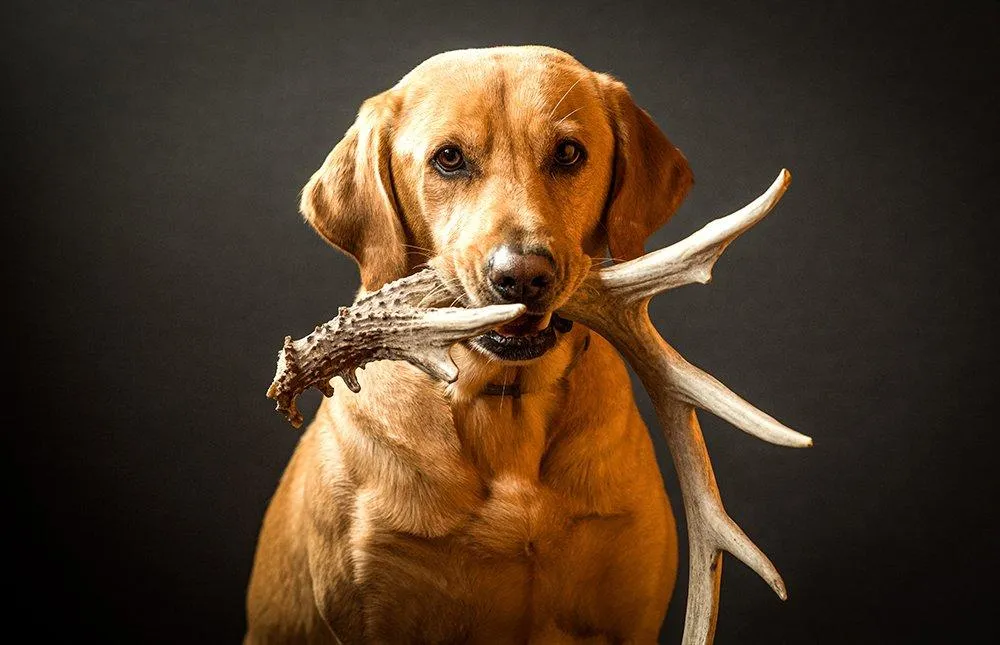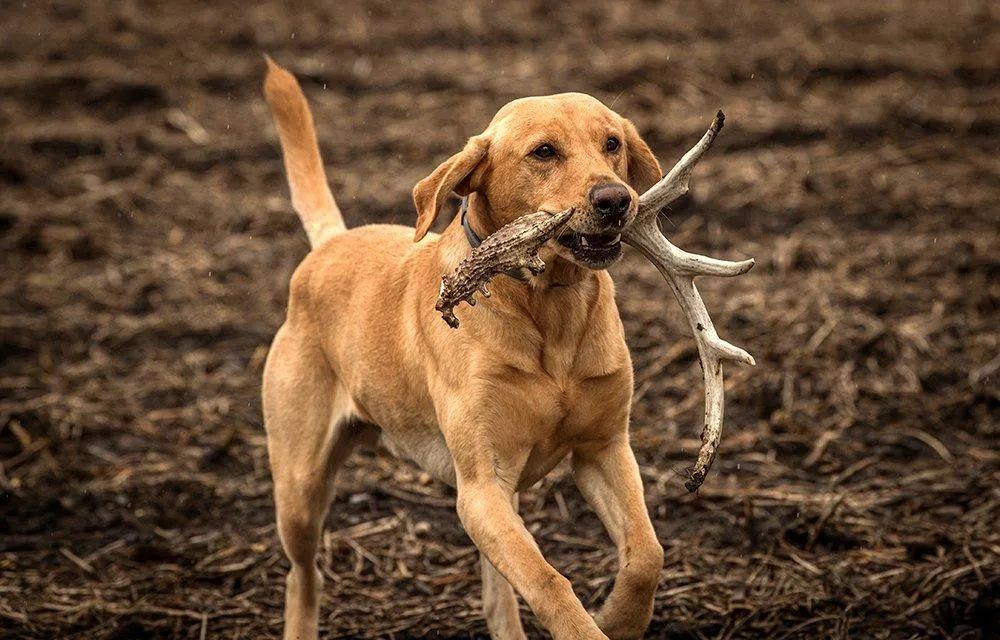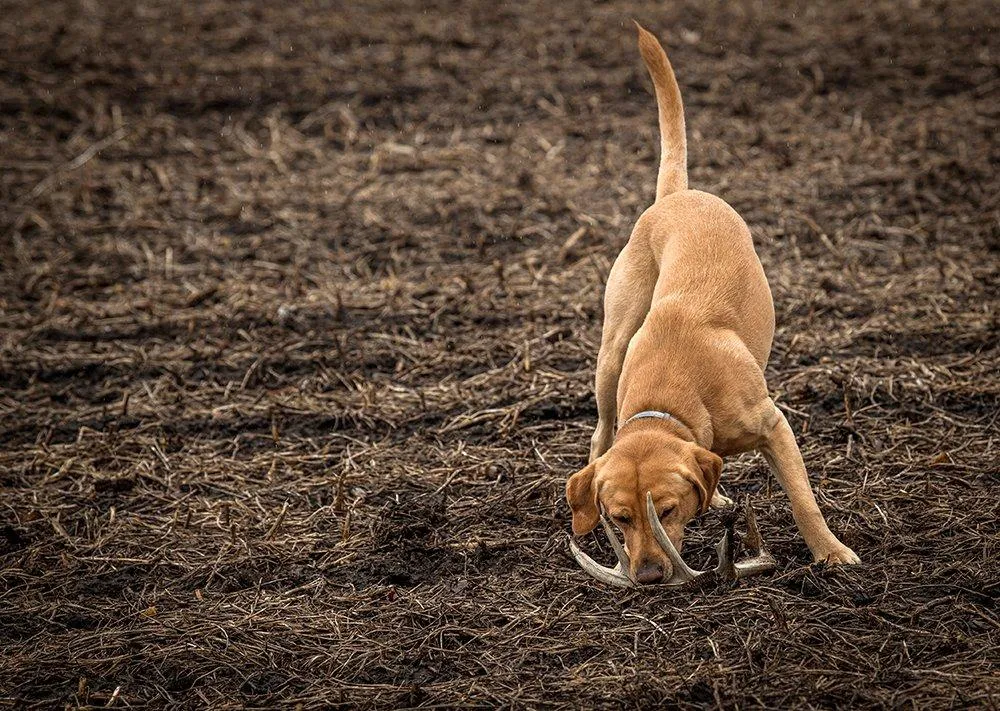Shed hunting, the exhilarating pursuit of shed deer antlers, can be a rewarding passion. Many envision a season filled with incredible finds, but the reality often involves a mix of substantial racks, smaller pieces, and the occasional unexpected item – a ram’s horn or even a lost toilet seat. This quest for “white gold” often leads dedicated hunters to consider a crucial partner: a dog. But what makes a dog the “best” for this unique task? It’s not about a single definitive breed, but rather about matching a dog’s natural aptitudes and trainability with your own hunting style and preferences. If you’re dreaming of a canine companion to amplify your shed hunting success, understanding the key traits and considering popular breeds can set you on the right path.
While all dogs possess a remarkable sense of smell, not all breeds are inherently predisposed to the specific demands of shed hunting. The primary advantage lies with dogs that naturally exhibit strong retrieving instincts. This innate ability significantly reduces the training effort required, allowing you to focus on refining their scent-tracking and antler-finding skills. As Jeremy Moore of Dog Bone’s aptly puts it, “Natural retrieval is really desirable. I’m a fan of minimizing what has to happen there. I hate having to train stuff into a dog that I shouldn’t have to.” Any sporting dog breed generally possesses the foundational tools for this activity, but some excel due to their ingrained predispositions.
 A dog retrieving a shed antler in a field.
A dog retrieving a shed antler in a field.
Nature vs. Nurture: The Core of Shed Dog Potential
The olfactory capacity of a dog is impressive, but for shed hunting, traits like retrieving prowess often take precedence over the sheer number of olfactory receptors. While scenting, pointing, and flushing dogs can certainly be trained for shed hunting, the specific attributes they were bred for are not as directly applicable as a strong natural retrieving drive. Dogs that are genetically inclined to fetch and bring back objects have a significant head start.
Moore emphasizes that shaping a dog’s natural instincts is far more effective than trying to instill skills they lack. “We bring it out of them. It’s in them naturally,” he states. “We shape it to match what we want.” For those looking to acquire a new dog specifically for shed hunting, or to cultivate these skills in a dog they already own, focusing on breeds known for their retrieving abilities is a wise strategy. If a dog doesn’t naturally retrieve, introducing them to this behavior can be achieved by using familiar objects like tennis balls, perhaps enhanced with a scent attractant, and gradually progressing to soft synthetic antlers. This systematic approach helps build confidence and a positive association with the task.
Top Contenders: Breeds Exhibiting Shed Hunting Aptitude
While a definitive “top 10” list for the Best Dog Breed For Shed Hunting is elusive, several breeds consistently stand out due to their combination of natural traits, trainability, personality, and intelligence. Jeremy Moore highlights a selection of breeds that he finds particularly well-suited for this pursuit. These dogs possess the innate qualities that make them prime candidates for becoming adept antler-finders.
Retrievers: Labrador Retrievers and Golden Retrievers are perennial favorites. Labs are immensely popular, not just for their numbers but for their remarkable versatility. They possess excellent retrieving skills, a keen sense of smell, and an amiable disposition. Golden Retrievers, often described as long-haired Labs, share these valuable attributes, making them equally strong contenders. Their inherent drive to fetch and return makes them excellent partners for finding shed antlers. Consider exploring resources on best hunting dog in the world to understand the broader scope of canine hunting capabilities.
Setters and Pointers: Breeds like the English Setter and German Wirehaired Pointer, though traditionally used for bird hunting, also possess adequate noses and exceptional retrieving abilities that translate well to shed hunting. While their pointing and flushing instincts might not be directly applicable, their scenting and retrieving drives are highly beneficial. These breeds can often adapt their focus from game birds to the scent of shed antlers.
Trailers (Scent Hounds): Dogs renowned for their exceptional noses, such as Beagles, German Shepherds, Belgian Malinois, and Bloodhounds, are incredibly effective at locating scents. Beagles boast around 225 million olfactory receptors, while German Shepherds and Malinois have approximately 250 million. The Bloodhound, with an astonishing 300 million receptors, is the undisputed king of scent detection. While these breeds excel at “sniffing out” sheds, they may require more dedicated training in the retrieving aspect compared to true retrievers.
Other Promising Breeds: While not always Moore’s top picks, breeds like American Foxhounds, Chesapeake Bay Retrievers, German Shorthaired Pointers, and Weimaraners are also frequently mentioned as capable antler dogs. Chesapeake Bay Retrievers, for instance, are known for their independence, which can sometimes make them more challenging to train. German Shorthaired Pointers and Weimaraners, while skilled, might not align with every owner’s personality preferences. Moore notes that even if he doesn’t have extensive experience with a particular breed, like the American Foxhound, they likely possess the fundamental traits for success. If you’re interested in exploring different canine roles, a look at types of hunting dogs with pictures can offer further insights.
 A diagram illustrating the number of olfactory receptors in different dog breeds.
A diagram illustrating the number of olfactory receptors in different dog breeds.
The Universal Shed Dog: Your Current Canine Companion
Beyond specific breeds, a compelling argument can be made that the best shed hunting dog is often the one you already have. Moore strongly advises against acquiring a new dog solely for shed hunting if you already own a canine companion, especially one with any hunting background. “I don’t think it makes sense to go get a new dog to do this,” he states. “If you have a hunting dog of any sort, and you’re thinking about shed hunting, one-hundred percent start with the dog you have.” The success you achieve will largely depend on the skillsets your existing dog already possesses.
Contrary to potential concerns, training your existing hunting dog for shed hunting will not diminish their established abilities. This endeavor adds value and creates a more versatile canine. Unlike teaching a coonhound to chase deer, shed hunting training is a complementary skill that, when taught correctly, allows your dog to locate “white gold” without compromising their primary hunting roles.
The key lies in matching the right dog with the appropriate training style. For shed hunting, retrieving and trainability are paramount. A dog’s willingness to please and intelligence are more critical than any specific breed characteristic. Before embarking on specialized shed hunting training, ensuring your dog has a solid foundation in basic obedience is essential. Rushing into shed training without this groundwork is likely to lead to frustration and limited success, regardless of the dog’s age or breed. A well-structured training program, adapted to the specific breed, is crucial. To further understand the nuances of training, examining resources on field bred english cocker spaniel hunting might offer different perspectives on specialized canine training.
 A golden retriever happily carrying a shed antler.
A golden retriever happily carrying a shed antler.
Personal Plans and the Future of Shed Dog Partnership
As for personal aspirations, the author plans to acquire a dedicated shed hunting dog by the end of the year. The goal is to train this future companion not only for shed retrieval but also, eventually, for recovering downed deer. This endeavor necessitates personal education and careful consideration of breed. While a Labrador Retriever or Golden Retriever’s natural retrieving skills are appealing for their ease of training, the unmatched scenting capabilities of German Shepherds and Bloodhounds are also highly attractive for their potential to locate both antlers and deceased game.
Even smaller breeds, like Yorkies, can develop a keen nose for shed antlers. This opens possibilities for a wider range of canine companions, including smaller breeds that might require modifications like removing hair bows or sweaters before heading afield. Ultimately, the journey to finding the best dog breed for shed hunting is a personalized one, blending breed characteristics with individual training and a strong bond between human and canine.
References:
- Dog Bone’s (Website information regarding Jeremy Moore’s expertise)
